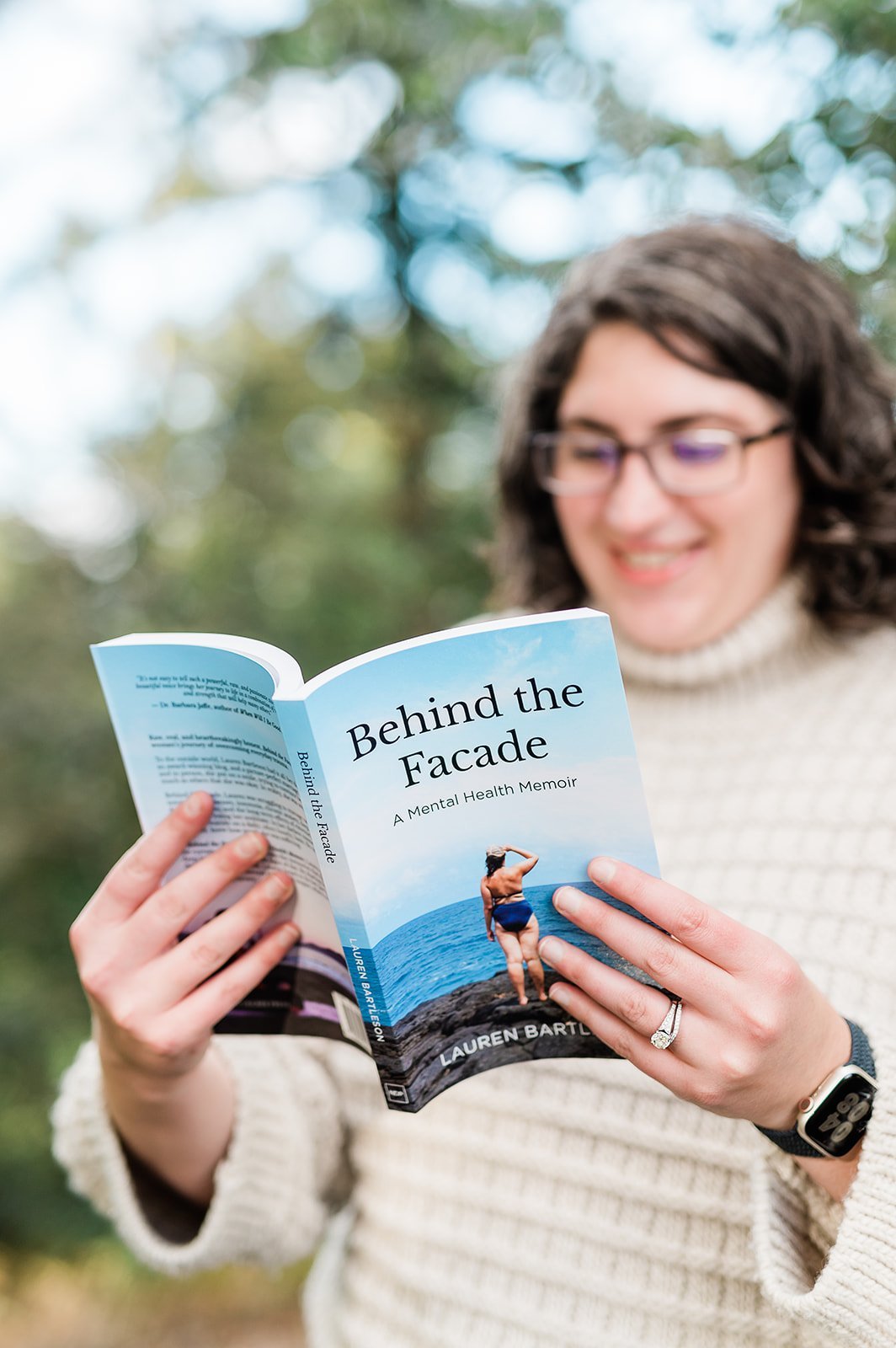
Write your manuscript part-time while you work full-time*
*and retain all rights, royalties, and creative direction
Do you have a book idea in your head but you’re not sure when you’ll find time to put pen to paper or fingers to keyboard? I feel you.
I’m Lauren, a published author with a full-time corporate job. My challenge? Carving out time during the week to write my next book. Most of the writing groups I’ve seen happen during the week and, honestly, at the end of the workday, I’m usually too tired to write. That’s where Weekend Writing comes in.
Before we dive in
How Weekend
Writing Started
I was right where you are: I had an idea for a book but couldn’t figure out when I’d write it on top of my full-time job and everything else going on in life.
In a plea of desperation, I sent an email to a few writing friends and acquaintances, asking if anyone wanted to write together on Saturday mornings to keep each other accountable. I suggested we log in to Zoom from wherever we were in the world (in my case, either from a local coffee shop or at home in PJs), say hi, and go on mute for two hours while we made progress on the books we hoped to publish one day. The proposed time worked for a friend of a friend who was publishing a young adult memoir.
We met one weekend morning—me in Oregon and her in South Carolina, then later Texas and other parts of the U.S.—and showed up every Saturday thereafter to make progress on our projects. Most sessions, I wrote or edited 1,000 words. Sometimes, I stared at a blank screen and made absolutely no progress. Even so, I finished the short story I’d been sitting on for 18 months in just a couple of months, simply because I gave myself permission to show up once a week (vs. once a day) and looked forward to seeing my friend.
Between the dedicated sessions and subtle accountability, Weekend Writing revolutionized my writing life, and I hope it can for you, too.
A take-what-you need writing group.
A breakdown of the Weekend Writing membership (it’s free)
-
You will receive a Zoom link for Saturdays from 9-11 a.m. PT. Simply log in and use this time to outline, research, or write—anything related to your book. There are no rules, word count limits, or expectations. The benefit of weekly sessions is that it helps keep your book top-of-mind, offering a simple but solid routine.
-
You’ll get access to an exclusive collection of PDFs and how-tos answering the questions that I had while writing my books (which form of publishing should I go with, how should I sequence my story, what should I listen to while writing, and more).
-
Be the first to know when a new resource is available.
-
Weekend Writing is a no-pressure accountability group for aspiring authors who work full-time.
-
Second to not having time, this is probably the most common concern I hear from those with a book idea. I’m working on a course to walk you through your options; in the meantime, you have a few options:
You can hire a ghostwriter to write your book for you. This is the most expensive option.
You can hire an author coach who can help you refine your writing skills or give suggestions/keep you accountable in overcoming this fear. This is also an investment but will help you gain skills you'll probably use down the line.
You can try your hand at writing and see how it goes. You might surprise yourself!
If you go with option 2 or 3, I'd consider working with a developmental editor (DE) to flush out the storyline and help you create an outline. Having a guideline of sorts may help you feel more confident. I’ve done it two ways: working with a DE from day one and bringing one on once I had a rough draft of my manuscript.
Regardless of your writing/editing process, I'd encourage you to read as much as you can. Make note of what you enjoy, what bothers you, if you get caught on a specific formatting choice (e.g., no quotation marks), etc. Then you can apply what you've learned to your own writing. It’s an incredible way to help create your own style.
-
I don’t believe there’s a right or wrong way for writing groups to work.
The suggested $8/month goes directly to supporting the costs of running the community. Circle (where the group is hosted), Zoom Pro (so we can have longer meetings), and SquareSpace (where the landing page is hosted) are all monthly subscriptions, and I appreciate you chipping in to cover those costs.
If you prefer, you can pay $4/month by using the code HALFTIME or pay $2/month with the code PARTTIME. If you need a full scholarship, contact lauren@weekendwriting.com—no questions asked.
-
Not necessarily. Some of our members are writing prompts or working on something else, but the majority are doing so with the goal of writing a book.
Personally, I find a lot of value in connecting with others on the same writing journey. So while we may be at different stages of the process (someone might be coming up with a story while another may be outlining, writing, researching, or editing…), many of us are working toward a common goal together and can keep each other accountable.
-
No worries! Join us for the next one. Saturday Sessions will not be recorded, but feel free to carve out your own working session and set a timer for two hours if you want to make up the time.
-
You will receive a link to join a Zoom call every Saturday from 9-11 a.m. PT. At the start of the session, we’ll log in, say hi, and, if you want, chime into the chat with what you hope to accomplish during the session. Then we’ll all go on mute and work individually until 11 a.m. PT. During this time, you can listen to music or whatever else helps you focus—others won’t hear it. Approximately two hours later, we’ll close as a group by telling everyone what we accomplished in the chat window. (Remember: showing up in itself is an accomplishment!).
You can use this time to outline, research, or write—anything related to your book. There are no rules, word count limits, or expectations. The benefit of weekly sessions is that it helps keep your book top-of-mind, offering a simple but solid routine.
-
No problem! No need to be on camera, come off mute, or type in the chat window. All I ask is that you show up exactly as you are in whatever way feels most authentic to you.
For the comfort of the larger group, any members that are disruptive on the Saturday Sessions or in the community will kindly be asked to leave. If the problem persists, your membership will be terminated.
-
No problem! Upon canceling, you will retain access to the membership portal until the last day of your billing cycle. After your billing cycle ends, you will lose access to the membership portal, including weekly writing sessions, monthly group chats, and an always-available resource library. Fear not, you can rejoin or switch tiers anytime.
FAQs
If you have any other questions, feel free to contact me and I’ll do my best to answer.




